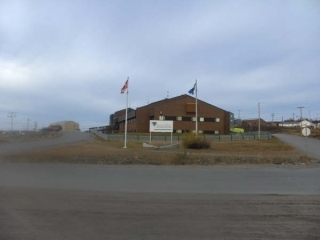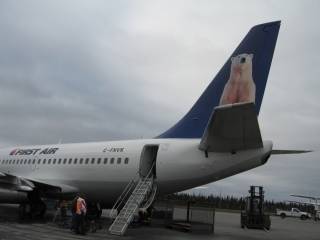McGill Accredited Training Site for Family Medicine
General Description

Location
Kuujjuaq is the largest northern village (Inuit community) in Nunavik. Kuujjuaq lies 48 km upstream from Ungava Bay. Trainees are flown to Kuujjuaq.The teaching site is part of the Ungava Tulattavik Health Centre.
This site is accredited to Université Laval.
Location on Google Maps (exact distance is calculated between the trainee's base unit and the site using Québec 511)
Capacity
- 1 to 2 trainees per period (6 periods per year from July to December)
Length of Rotation
- 1 month
Language
- Spoken: French with staff and English with patients
- Charting: French and English
Clinical Exposure and Learning Experiences
Rotation primarily done in Hospital.
Trainees can be exposed to:
- ER
- Home Care/Visits
- Long Term Cares
- Minor Procedures
- Obstetrics
- Pre Natal and Post Natal Care
- Social Pediatrics
- Visits to other villages (on occasion)
- Walk-in Clinic
- Ward
- Other clinical exposures: Tuberculosis (each trainee must be fitted with an N95 respirator mask)
► The trainees assigned supervisor may change during the course of their rotation.
Lodging

Type of Lodging
Lodging is provided by the establishment and is located at a short walking distance from the hospital.
Trainees are lodged in a "transit". A transit is a house shared by other medical professionals. Trainees have a private room and share common gender-neutral areas (bathroom, kitchen, living room).
► It is important that everyone does their share to keep all common areas clean and safe at any time.
Accommodation Commodities
All accommodations are non-smoking environments.
| Equipment | Details |
|---|---|
| Full kitchen: | Refrigerator; Microwave; Stove; Dishes; Utensils; Cookware |
| Television set, cable: | Provided |
| Washer and dryer: | Provided + an iron |
| Internet Access: | Available (wireless): bring your laptop. |
| Telephone: | Long distance calls forbidden |
| Linens: | Supplied |
| Visitors: | Not allowed |
| Pets: | Not allowed |
| Deposit for keys: | None |
Transportation

Trainees will travel to the site by air. As the flight is reserved and paid for by the site, trainees will not receive any stipend for transportation.
Traveling by Plane
The flight arrangements are made in advance by the site coordinator. An email confirming transportation is usually sent 2 weeks prior to the departure date. If you haven’t received it, contact the site coordinator.
- Departure is from Pierre Elliott Trudeau International Airport. You pick up your ticket on the day of travel from the First Air counter. You should confirm your flight 24 hours prior to the departure with First Air as flights can be delayed due to weather constraints.
- The flight leaves on the Sunday before the start of your rotation and the return flight is the last Friday afternoon of your rotation. It is recommended that you arrive at least 2 hours in advance.
- Checked luggage is restricted to 23 kg. Extra fees may be charged for exceeding this limit.
- It is recommended that you bring snacks on board as usually a light meal is served.
- Once at the destination, make sure that the luggage is unloaded.
- There will be a van-taxi waiting to bring you to the hospital, which is a 5-minute drive. Even though, the driver has your name, we recommend having a proactive approach and asking questions at the counter.
- For any other questions on flight, you can contact First Air through their website or call at 1-800-267-1247.
Important Information
Click Here for the Trainee Guide.
Important:
At least 3 weeks prior to rural rotation/elective, email the site contact to confirm your arrival.
Contact
| Site Address | Coordinator | Supervisor |
|---|---|---|
| Ungava Tulattavik Health Centre C.P 149 Kuujjuaq, QC J0M 1C0 |
dsp.enseignement.cstu [at] ssss.gouv.qc.ca (Geneviève Gosselin) (819) 964-2905 ext. 321 |
Dr. Saliou Demba Mbaye Dr. Ababacar Thorpe |
